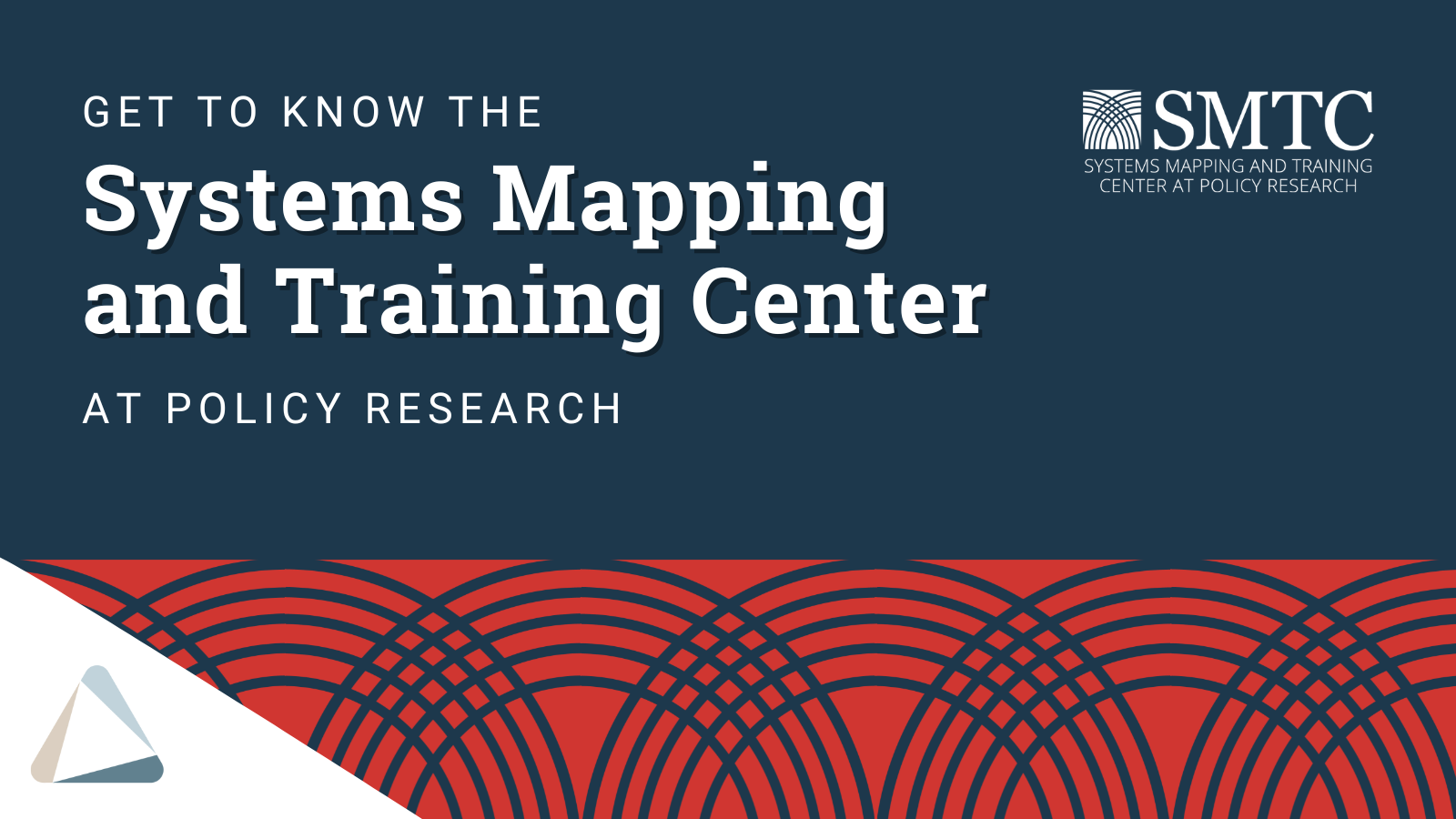Policy Research has launched the Systems Mapping and Training Center (SMTC), a technical assistance hub designed to help communities nationwide transform local service provision and improve outcomes.
What it is: Through collaborative, data-driven systems mapping and targeted training, the SMTC empowers local decision-makers across a wide range of fields, including behavioral health, the criminal legal system, homelessness, and Veterans services. Led by Vice President Travis Parker, the initiative leverages over 35 years of Policy Research’s expertise, bringing communities together to pinpoint gaps and change them into strategic solutions.
Why it matters: The SMTC offers tools to address pressing community challenges. By fostering cross-system collaboration, the SMTC positions localities to better support individuals with behavioral health conditions and enhance overall public health outcomes. With specialized offerings tailored to local populations and service landscapes, the SMTC is uniquely poised to catalyze positive change and lasting improvements in community well-being and safety.
What is offered: The SMTC offers systems mapping events and trainings. These systems mappings and trainings are collaborative processes that use a public health approach to create transformative systems change.
Systems Mapping Events
Systems mapping is essential for communities looking to break down siloes and build collaborative partnerships. During a systems mapping event, participants create a map of their local networks. The map identifies existing resources, highlighting areas of need and opportunities for partnership. When agencies and institutions have a complete picture of how they interact with one another, they can work together to center their focus on and align services for the people they serve.
The SMTC is proud to offer the following systems mapping events:
Trainings
Trainings help partners use the same language, center on the same goals, and work together toward system transformation. When conducting a training, experts from the Systems Mapping and Training Center bring people together to work through a curriculum. Key information within a training is customized to a community’s needs. Trainings are developed using adult-learning best practices. Time is always provided for group participation and discussion. With these trainings, participants can either go on to train other trainers or use the training to enhance their own work.
The SMTC is proud to offer the following trainings:
Learn more about our services and see their potential impact on your community!


